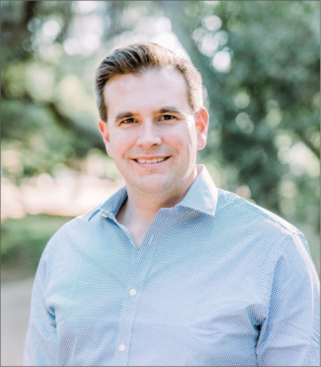Jonathan Richardson, an assistant professor of physics and astronomy, has received a grant of $480,000 from the National Science Foundation to develop advanced instrumentation for the Laser Interferometer Gravitational-wave Observatory, or LIGO, based at sites in Louisiana and Washington.
Completed in 2002, LIGO detects gravitational waves — ripples in space that travel at the speed of light — generated by the collisions of distant black holes and neutron stars. Its detectors employ high-power laser beams over a 4 km distance to measure passing gravitational waves. LIGO accomplishes this by splitting a laser beam in two and looking for interference patterns when the two halves of the beam recombine.
The three-year grant supports the development of new laser wavefront control technologies aimed at extending the astrophysical reach of gravitational-wave detectors.
Richardson explained that gravitational waves carry new and complementary information to the light observed by telescopes.
“In the coming decade, we expect gravitational-wave detections will reveal new insights into extreme gravity, ultradense states of matter inside neutron stars, and the nature of black holes,” he said.
The project will develop novel adaptive optics that can significantly reduce the optical losses inside LIGO and future detectors, enabling higher laser power and greater sensitivity to gravitational waves.
“In addition to its astrophysical impact, this new technology will provide a general means of achieving lower loss in complex laser systems, with potential to accelerate discoveries in many fields including atomic, molecular, and optical physics and optical quantum computing,” Richardson said.
Richardson’s research focuses on precision tests of gravity and illuminating the nature of black holes. In support of these goals, his group works to solve major technological limitations in gravitational wave detection. Prior to joining the UCR faculty this year, he was a LIGO Laboratory postdoctoral scholar at the California Institute of Technology from 2017-21. He is a member of the LIGO Scientific Collaboration and the Cosmic Explorer Consortium.
